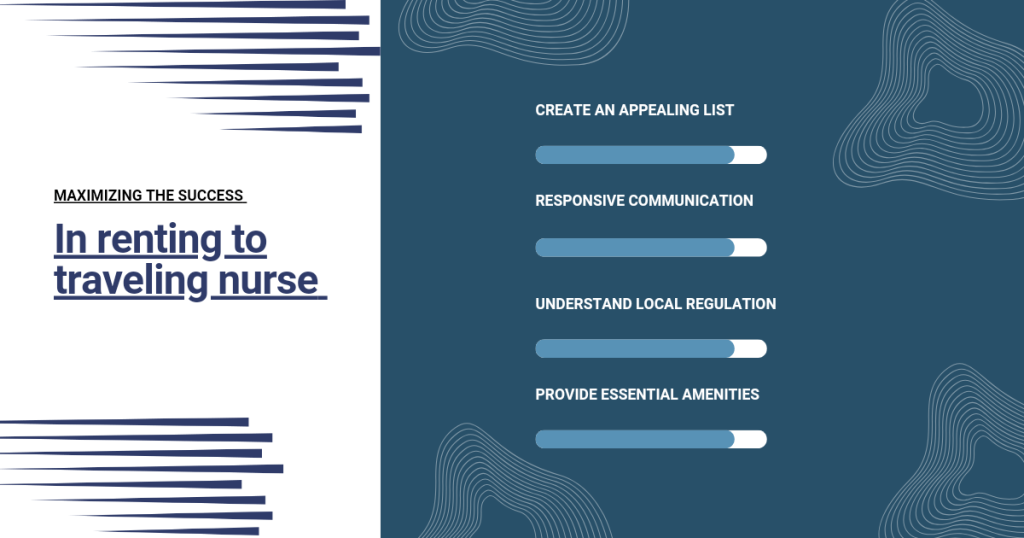How to Negotiate Travel Nurse Pay
Negotiating travel nurse pay can be a daunting task, but with the right approach, you can secure a competitive salary that reflects your skills and experience.
In this blog post, we’ll discuss strategies for negotiating travel nurse pay and tips for a successful negotiation process.
Understanding Travel Nurse Pay

Factors Affecting Travel Nurse Pay
Travel nurse pay can vary based on factors such as location, facility, specialty, experience, and demand. Understanding these factors can help you negotiate a fair salary.
Importance of Negotiating Pay
Negotiating your pay can lead to higher earnings, better benefits, and increased job satisfaction. It also demonstrates your value as a healthcare professional.
Preparing to Negotiate
Researching Pay Rates
Before negotiating, research pay rates for travel nurses in your specialty and location. Websites like Salary.com and Glassdoor can provide valuable salary information.
Understanding Your Worth
Evaluate your skills, experience, and certifications to determine your market value. Be prepared to articulate why you deserve a higher salary based on your qualifications.
Strategies for Negotiating
Highlighting Your Skills and Experience

Emphasize your unique skills, certifications, and experience that make you a valuable asset to the healthcare facility. Provide specific examples of how your skills have benefited previous employers.
Negotiating with Confidence
Approach the negotiation with confidence and assertiveness. Be prepared to make a strong case for why you deserve a higher salary and don’t be afraid to ask for what you’re worth.
Tips for Successful Negotiation

Being Flexible
While it’s important to negotiate for a competitive salary, be open to compromise. Consider other benefits, such as flexible scheduling or tuition reimbursement, as part of your compensation package.
Considering Non-Monetary Benefits
In addition to salary, consider negotiating for non-monetary benefits such as housing stipends, travel reimbursements, or extended time off between assignments.
Dealing with Rejection
Understanding Reasons for Rejection
If your negotiation is unsuccessful, ask for feedback to understand why your request was denied. Use this feedback to improve your negotiating skills for future opportunities.How to Negotiate Travel Nurse Pay
Moving Forward After Rejection
If your negotiation is rejected, remain professional and continue to perform your job duties to the best of your ability. Keep in mind that there will be other opportunities to negotiate in the future.
Conclusion
Negotiating travel nurse pay can be challenging, but with preparation, confidence, and a willingness to compromise, you can secure a competitive salary that reflects your value as a healthcare professional.
Use the strategies and tips outlined in this blog post to navigate the negotiation process successfully.
FAQs on How to Negotiate Travel Nurse Pay
- Is it common for travel nurses to negotiate their pay?
- Yes, many travel nurses negotiate their pay to ensure they are receiving fair compensation for their skills and experience.
- What should I do if the employer refuses to negotiate my pay?
- If your employer refuses to negotiate, consider other aspects of your compensation package that may be negotiable, such as benefits or scheduling.
- How often should travel nurses negotiate their pay?
- Travel nurses should negotiate their pay whenever they feel they are not being fairly compensated or when their skills and experience warrant a higher salary.
- Can travel nurses negotiate pay rates for different assignments?
- Yes, travel nurses can negotiate pay rates for each assignment based on the location, facility, and demands of the job.
- What is the best way to approach a negotiation for travel nurse pay?
- Approach the negotiation with confidence, research, and a clear understanding of your worth. Be prepared to make a compelling case for why you deserve a higher salary.



